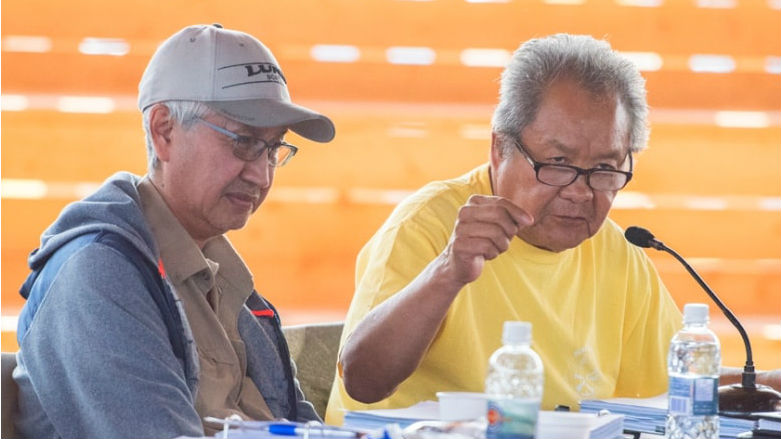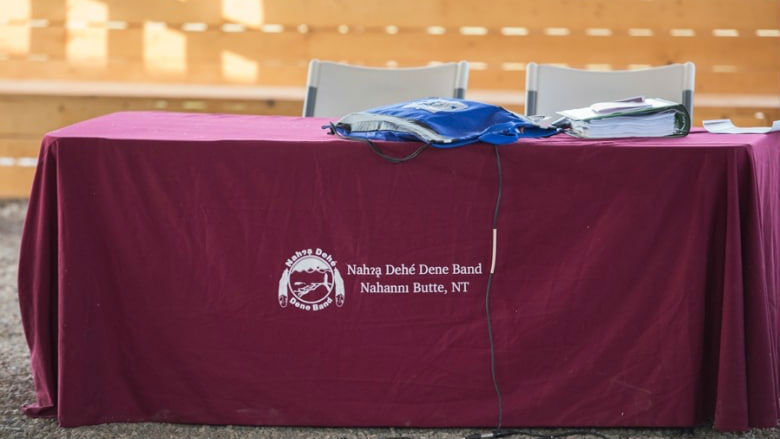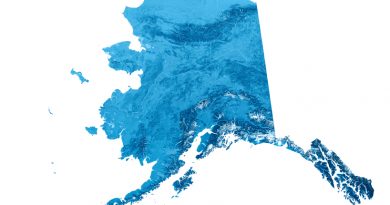Northern Canadian First Nations reject Ottawa’s land claim offer

The federal government’s latest land claim offer to the Dehcho First Nations (DFN) received an overwhelming thumbs down at the general assembly in Wrigley, Northwest Territories (N.W.T.), this week.
Parts of the offer were made public in June.
The entire 223-page agreement in principle was given to attendees at the assembly, and each of the First Nations’ 10 member groups were asked for feedback on its 50 chapters.
The chapters include governance on health, education, land, taxation and finances.
The majority of delegates rejected the offer or called for a counter-offer.
“Our Dene laws do not give any basis for giving away or selling our land to others,” said Sharon Pellissey, director of lands for the Pehdzeh Ki First Nation in Wrigley.
“We must abide by our elders, our ancestors, our law, our legal obligations that arise from our relationship with the land and, therefore, we cannot sell our land.”
The Dehcho have been in land negotiations with the federal government for 19 years.
“We can not compromise the future of our children”

The new offer outlines two options. One has a $113-million cash settlement, with 48,000 square kilometres of surface and subsurface resource royalty rights, but no resource revenues from Crown land in the Mackenzie Valley.
The other option is the same cash settlement, but with a smaller land offer of 42,000 square kilometres of surface and subsurface rights, and a small share in mineral royalties from development on Crown land in the Mackenzie Valley.
Two federal land negotiators and one territorial land negotiator met with the assembly on Wednesday.
Sambaa K’e First Nation in Trout Lake and Ka’a’gee Tu First Nation in Kakisa asked for an additional six months to review the offer.
The Deh Gah Got’ie First Nation in Fort Providence also wants more time to discuss the offer with its members.
“We are landowners and we can not compromise the future of our children by giving that away,” said Sam Gargan with the Deh Gah Got’ie First Nation.
Band absent from meeting

The Nahanni Butte Dene Band was absent from the assembly, even though organizers expected representatives to attend.
Delegates must now decide how to proceed with the federal government’s offer.
A resolution is expected on Friday, the final day of the assembly.
Newly elected Grand Chief Gladys Norwegian urged for a collaborative approach.
“We need to discuss how we can move forward and work together. How we can help each other.”
Related stories from around the North:
Canada: Canada moves to recognize NunatuKavut Inuit community in Labrador, Radio Canada International
Finland: In Santa’s hometown, are tourism and a railway threatening Sámi culture?, Cryopolitics Blog
Norway: Norway and Sweden in quarrel over cross-border reindeer grazing, The Independent Barents Observer
Russia: Russia plans fenced parks to confine reindeer herding in Arctic, The Independent Barents Observer
Sweden: Report sheds light on Swedish minority’s historic mistreatment, Radio Sweden
United States: Inuit leaders to advance Indigenous human rights, Radio Canada International



